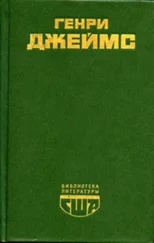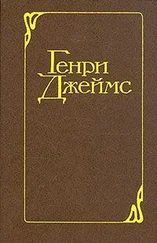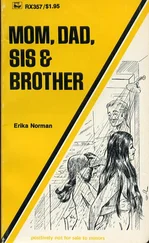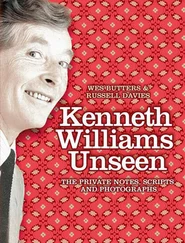Генри Джеймс - Notes of a Son and Brother
Здесь есть возможность читать онлайн «Генри Джеймс - Notes of a Son and Brother» — ознакомительный отрывок электронной книги совершенно бесплатно, а после прочтения отрывка купить полную версию. В некоторых случаях можно слушать аудио, скачать через торрент в формате fb2 и присутствует краткое содержание. Жанр: foreign_prose, foreign_antique, на английском языке. Описание произведения, (предисловие) а так же отзывы посетителей доступны на портале библиотеки ЛибКат.
- Название:Notes of a Son and Brother
- Автор:
- Жанр:
- Год:неизвестен
- ISBN:нет данных
- Рейтинг книги:4 / 5. Голосов: 1
-
Избранное:Добавить в избранное
- Отзывы:
-
Ваша оценка:
- 80
- 1
- 2
- 3
- 4
- 5
Notes of a Son and Brother: краткое содержание, описание и аннотация
Предлагаем к чтению аннотацию, описание, краткое содержание или предисловие (зависит от того, что написал сам автор книги «Notes of a Son and Brother»). Если вы не нашли необходимую информацию о книге — напишите в комментариях, мы постараемся отыскать её.
Notes of a Son and Brother — читать онлайн ознакомительный отрывок
Ниже представлен текст книги, разбитый по страницам. Система сохранения места последней прочитанной страницы, позволяет с удобством читать онлайн бесплатно книгу «Notes of a Son and Brother», без необходимости каждый раз заново искать на чём Вы остановились. Поставьте закладку, и сможете в любой момент перейти на страницу, на которой закончили чтение.
Интервал:
Закладка:
Such an atmosphere was, taking one of its elements with another, doubtless delightful; yet if it was friendly to the suggested or imagined thing it promoted among us much less directly, as I have already hinted, the act of choice—choice as to the "career" for example, with a view of the usual proceedings thereupon consequent. I marvel at the manner in which the door appears to have been held or at least left open to us for experiment, though with a tendency to close, the oddest yet most inveterately perceptible movement in that sense, before any very earnest proposition in particular. I have no remembrance at all of marked prejudices on our father's part, but I recall repeated cases, in his attitude to our young affairs, of a disparagement suggested as by stirred memories of his own; the instance most present to me being his extreme tepidity in the matter of William's, or in fact of my, going, on our then American basis, to college. I make out in him, and at the time made out, a great revulsion of spirit from that incurred experience in his own history, a revulsion I think moreover quite independent of any particular or instrinsic attributes of the seat of learning involved in it. Union College, Schenectady, New York, the scene of his personal experiment and the natural resort, in his youth, of comparatively adjacent Albanians, might easily have offered at that time no very rare opportunities—few were the American country colleges that then had such to offer; but when, after years, the question arose for his sons he saw it in I scarce know what light of associational or "subjective" dislike. He had the disadvantage—unless indeed it was much more we who had it—of his having, after many changes and detachments, ceased to believe in the Schenectady resource, or to revert to it sentimentally, without his forming on the other hand, with his boys to place, any fonder presumption or preference. There comes out to me, much bedimmed but recognisable, the image of a day of extreme youth on which, during a stay with our grandmother at Albany, we achieved, William and I, with some confused and heated railway effort, a pious pilgrimage to the small scholastic city—pious by reason, I clearly remember, of a lively persuasion on my brother's part that to Union College, at some indefinite future time, we should both most naturally and delightedly repair. We invoked, I gather, among its scattered shades, fairly vague to me now, the loyalty that our parent appeared to have dropped by the way—even though our attitude about it can scarce have been prematurely contentious; the whole vision is at any rate to-day bathed and blurred for me in the air of some charmed and beguiled dream, that of the flushed good faith of an hour of crude castle-building. We were helped to build, on the spot, by an older friend, much older, as I remember him, even than my brother, already a member of the college and, as it seemed, greatly enjoying his life and those "society" badges and trinkets with which he reappears to me as bristling and twinkling quite to the extinction of his particular identity. This is lost, like everything else, in the mere golden haze of the little old-time autumn adventure. Wondrous to our sensibility may well have been the October glamour—if October it was, and if it was not it ought to have been!—of that big brave region of the great State over which the shade of Fenimore Cooper's Mohawks and Mohicans (if this be not a pleonasm) might still have been felt to hang. The castle we had built, however, crumbled—there were plenty of others awaiting erection; these too successively had their hour, but I needn't at this time stoop to pick up their pieces. I see moreover vividly enough how it might have been that, at this stage, our parents were left cold by the various appeal, in our interest, of Columbia, Harvard and Yale. Hard by, at Providence, in the Newport time, was also "Brown"; but I recover no connection in which that mystic syllable swept our sky as a name to conjure with. Our largest licence somehow didn't stray toward Brown. It was to the same tune not conceivable that we should have been restored for educational purposes to the swollen city, the New York of our childhood, where we had then so tumbled in and out of school as to exhaust the measure, or as at least greatly to deflower the image, of our teachability on that ground. Yale, off our beat from every point of view, was as little to be thought of, and there was moreover in our father's imagination no grain of susceptibility to what might have been, on the general ground, "socially expected." Even Harvard, clearly—and it was perhaps a trifle odd—moved him in our interest as little as Schenectady could do; so that, for authority, the voice of social expectation would have had to sound with an art or an accent of which it had by no means up to that time learned roundabout us the trick. This indeed (it comes to saying) is something that, so far as our parents were concerned, it would never have learned. They were, from other preoccupations, unaware of any such pressure; and to become aware would, I think, primarily have been for them to find it out of all proportion to the general pitch of prescription. We were not at that time, when it came to such claims, in presence of persuasive, much less of impressive, social forms and precedents—at least those of us of the liberated mind and the really more curious culture were not; the more curious culture, only to be known by the positive taste of it, was nowhere in the air, nowhere seated or embodied.
Which reflections, as I perhaps too loosely gather them in, refresh at any rate my sense of how we in particular of our father's house actually profited more than we lost, if the more curious culture was in question, by the degree to which we were afloat and disconnected; since there were at least luxuries of the spirit in this quite as much as drawbacks—given a social order (so far as it was an order) that found its main ideal in a "strict attention to business," that is to buying and selling over a counter or a desk, and in such an intensity of the traffic as made, on the part of all involved, for close localisation. To attend strictly to business was to be invariably there , on a certain spot in a certain place; just as to be nowhere in particular, to have to be nowhere, told the queer tale of a lack or of a forfeiture, or possibly even of a state of intrinsic unworthiness. I have already expressed how few of these elements of the background we ourselves had ever had either to add to or to subtract from, and how this of itself did after a fashion "place" us in the small Newport colony of the despoiled and disillusioned, the mildly, the reminiscentially desperate. As easy as might be, for the time, I have also noted, was our footing there; but I have not, for myself, forgotten, or even now outlived, the particular shade of satisfaction to be taken in one's thus being in New England without being of it. To have originally been of it, or still to have had to be, affected me, I recall, as a case I should have regretted—unless it be more exact to say that I thought of the condition as a danger after all escaped. Long would it take to tell why it figured as a danger, and why that impression was during the several following years much more to gain than to lose intensity. The question was to fall into the rear indeed, with ever so many such secondary others, during the War, and for reasons effective enough; but it was afterwards to know a luxury of emergence—this, I mean, while one still "cared," in general, as one was sooner or later to stop caring. Infinitely interesting to recover, in the history of a mind, for those concerned, these movements of the spirit, these tides and currents of growth—though under the inconvenience for the historian of such ramifications of research that here at any rate I feel myself warned off. There appeared to us at Newport the most interesting, much, of the Albany male cousins, William James Temple—coming, oddly enough, first from Yale and then from Harvard; so that by contact and example the practicability of a like experience might have been, and doubtless was, put well before us. "Will" Temple, as we were in his short life too scantly to know him, had made so luckless, even if so lively a start under one alma mater that the appeal to a fresh parentship altogether appears to have been judged the best remedy for his case: he entered Harvard jumping, if I mistake not, a couple of years of the undergraduate curriculum, and my personal memory of these reappearances is a mere recapture of admiration, of prostration, before him. The dazzled state, under his striking good looks and his manly charm, was the common state; so that I disengage from it no presumption of a particular plea playing in our own domestic air for his temporary Cambridge setting; he was so much too radiant and gallant and personal, too much a character and a figure, a splendid importance in himself, to owe the least glamour to settings; an advantage that might have seemed rather to be shed on whatever scene by himself in consenting to light it up. He made all life for the hour a foreground, and one that we none of us would have quitted for a moment while he was there.
Читать дальшеИнтервал:
Закладка:
Похожие книги на «Notes of a Son and Brother»
Представляем Вашему вниманию похожие книги на «Notes of a Son and Brother» списком для выбора. Мы отобрали схожую по названию и смыслу литературу в надежде предоставить читателям больше вариантов отыскать новые, интересные, ещё непрочитанные произведения.
Обсуждение, отзывы о книге «Notes of a Son and Brother» и просто собственные мнения читателей. Оставьте ваши комментарии, напишите, что Вы думаете о произведении, его смысле или главных героях. Укажите что конкретно понравилось, а что нет, и почему Вы так считаете.












